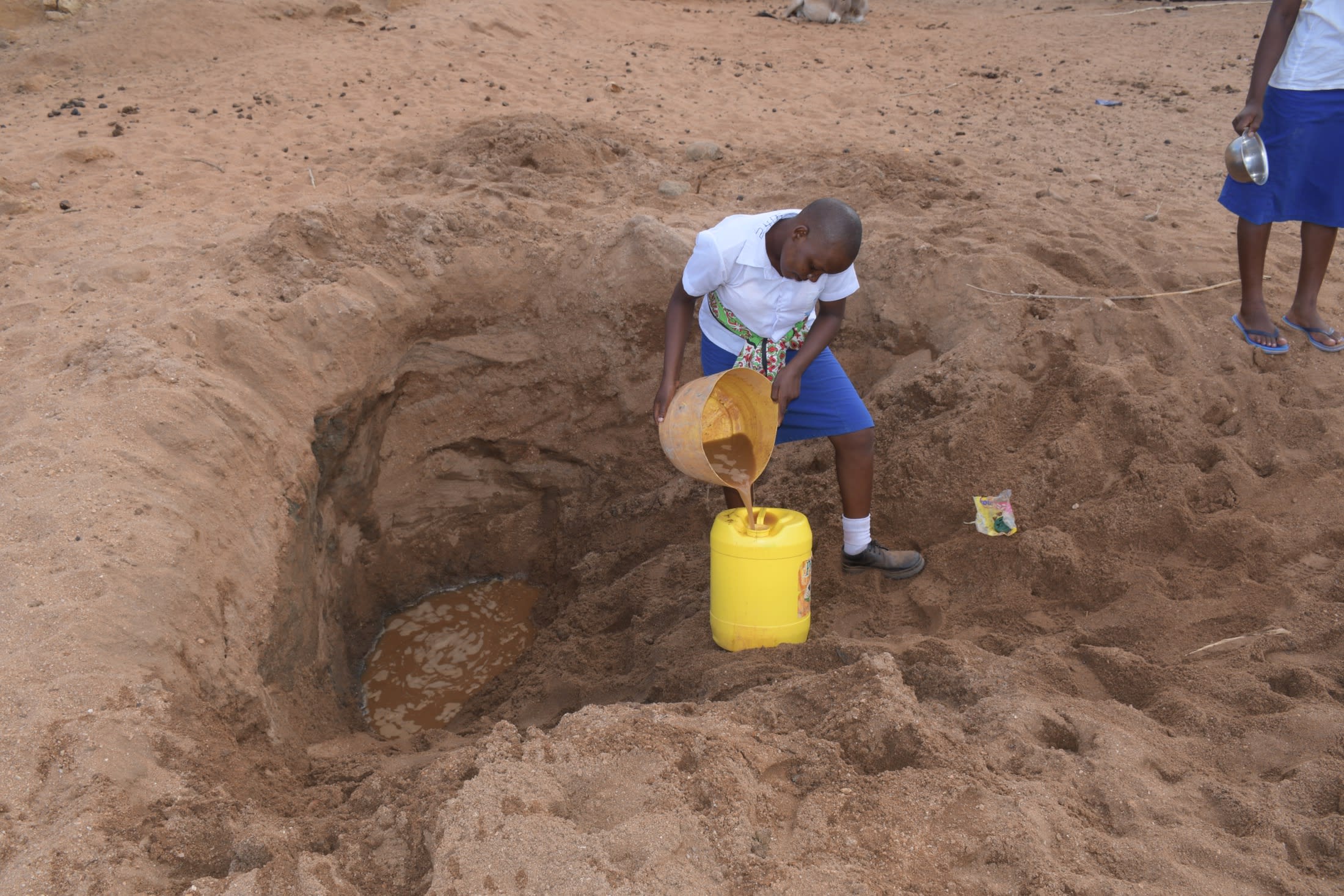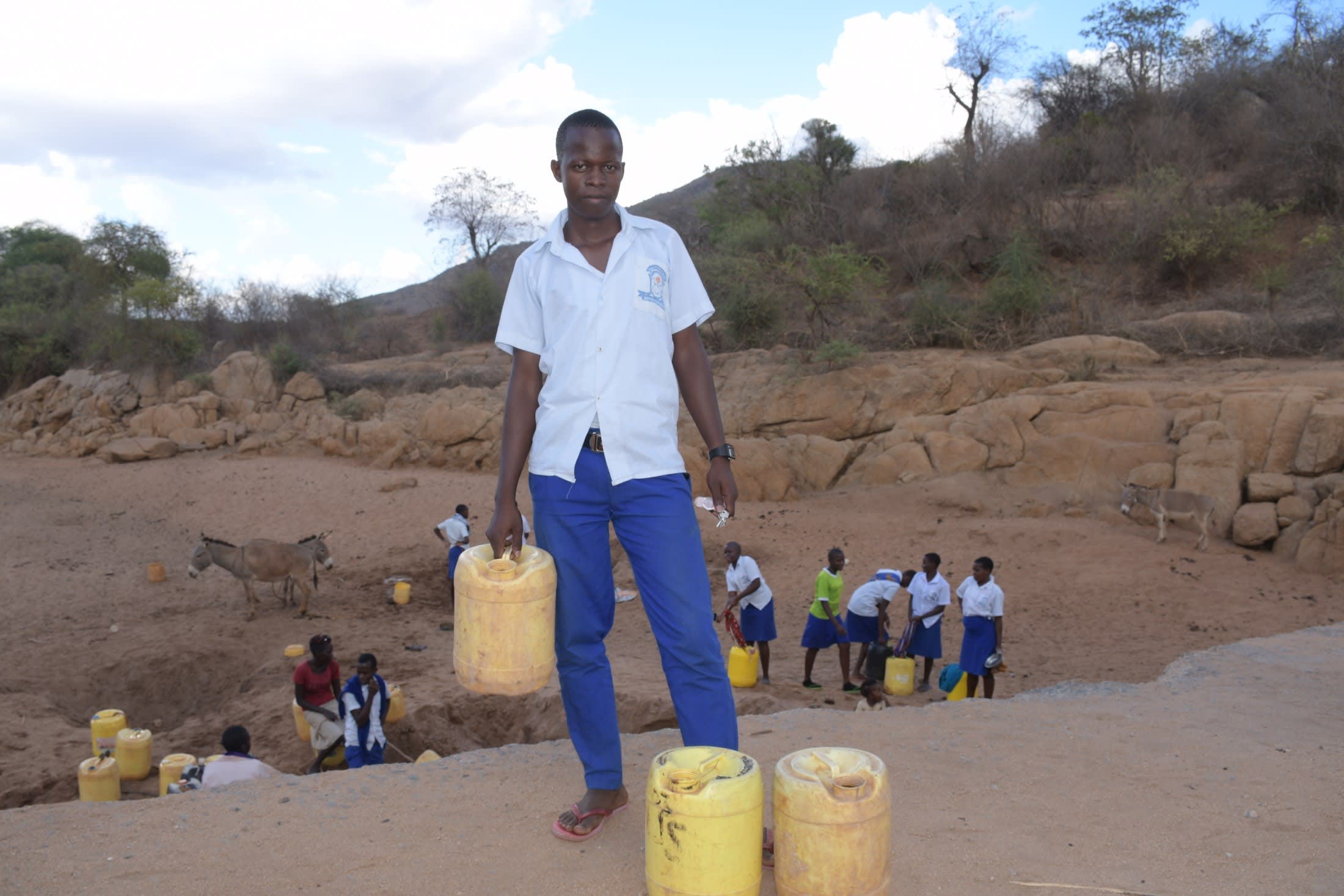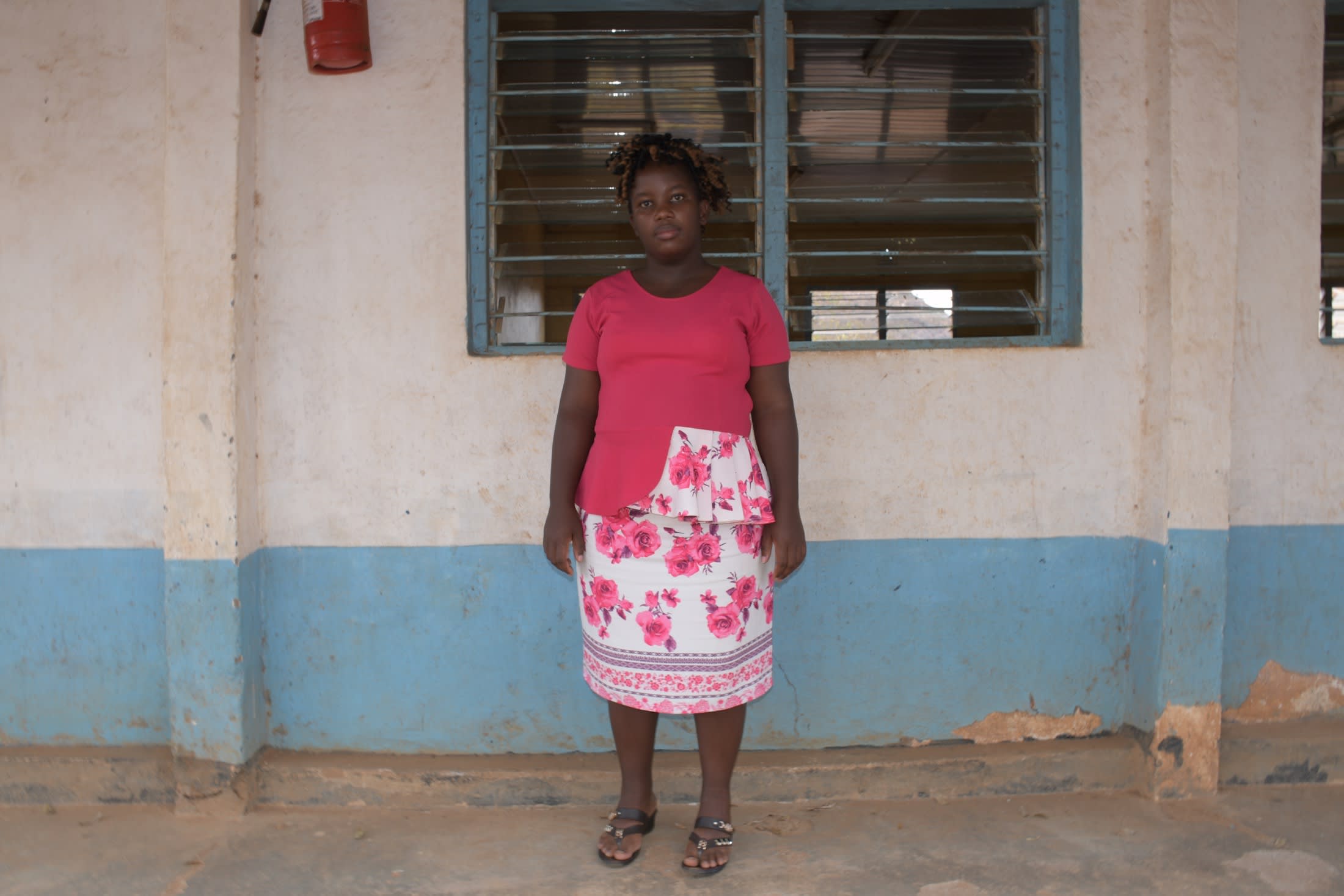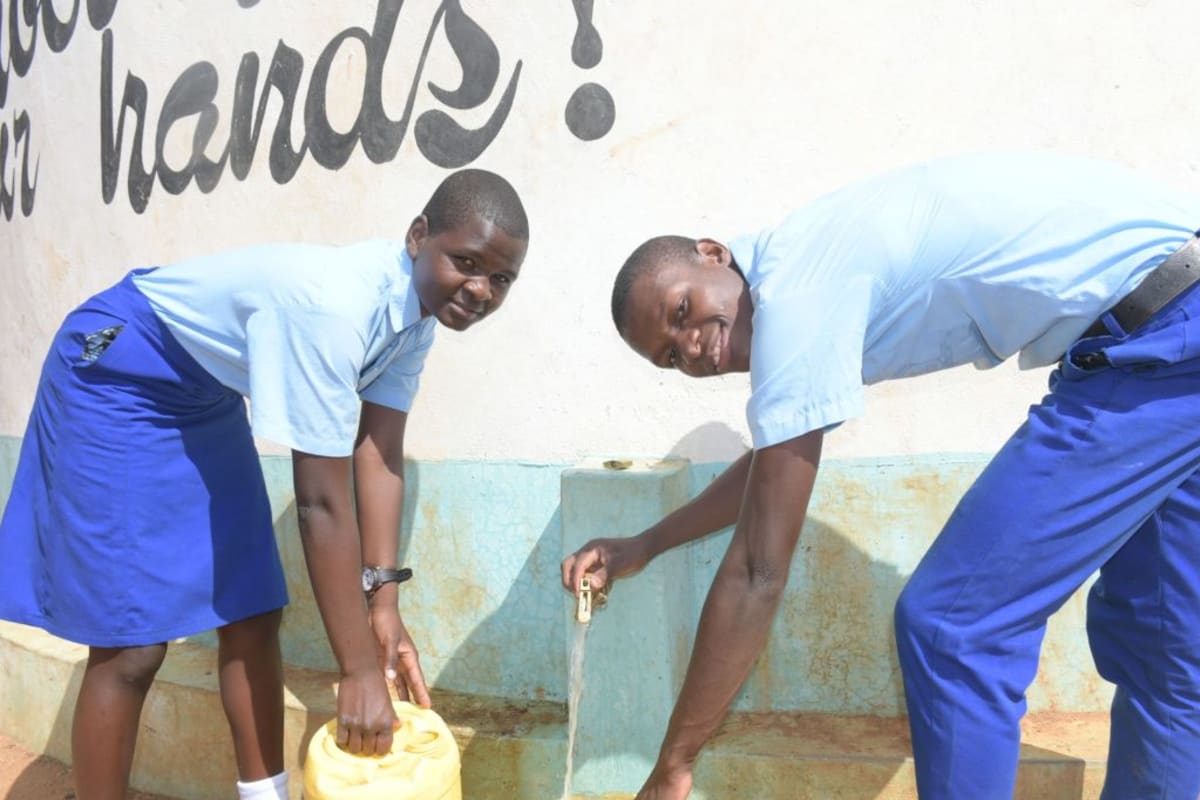The 398 students of Nguuku Secondary School spend too much of their time and energy finding and collecting water.
Their school currently has six rainwater tanks that only hold 30,000 liters of water, which is not sufficient to meet the boarding school's water demands. When the tanks run dry, students are forced to find water wherever they can, and most often, that is from the nearby riverbed scoop holes.
 The need for additional water sends students to the Katse River in the evening, which is located about one kilometer away. If they cannot collect sufficient water, students are forced to ignore their personal hygiene, such as bathing and toothbrushing.
The need for additional water sends students to the Katse River in the evening, which is located about one kilometer away. If they cannot collect sufficient water, students are forced to ignore their personal hygiene, such as bathing and toothbrushing.
"Fetching water from the river is time-consuming and exhausting," said Kilonzi M., a student at Nguuku Secondary School, shown in the photo below collecting water.
Not only is it tiring for students, but it is also risky.
"The scoop hole at Katse river is close to a murram (paved) road with a bridge, making it unsafe and dangerous. Earlier this year, a lorry fell into the river, which could have been fatal if we were fetching water at that time," said Kilonzi.

When the rain tanks are not able to collect sufficient water during the short rainy periods, the school administrators are forced to purchase water from outside vendors, an expense that the school can't afford.
"My students spend their free time in the evening fetching water rather than playing with their mates or studying. This reduces their concentration and performance in class," said senior teacher Esther Ndunda (in the below photo).

"Water scarcity also makes managing this school difficult because most of the resources are spent on water expenses," said Esther. "School projects like feeding programs, agriculture, and construction of more classrooms end up stalling or [are] scraped off."
The students and staff of Nguuku Secondary School need a reliable water source that will see them through long drought periods so they can put their time, energy, and resources into other things.
Rain Tank
We will build a 104,000-liter rain tank for this school, making the others look tiny in comparison. Because of how rarely it rains in Southeastern Kenya, this tank's large volume is designed to store as much water as possible during the seasonal rains, making more water available through the dry months. This water will benefit the students, teachers, and supplementary staff.
Parents will mobilize the materials needed for construction, including sand, stones, and water. They will also lend their strength and time to help with the construction. We will complement their materials with a skilled artisan to lead the project in addition to providing the tools, lumber, metal, cement, and gutter system.
As soon as the tank has time to cure, it can begin collecting rainwater for the school's use.
Training
We will train students and staff on sanitation, hygiene, and other topics for 1 day. Those in attendance will form a school health club that will promote good hygiene and sanitation practices both at school and at home. They will learn all of the steps to proper handwashing, how to treat water, and how to keep their environment clean. The school will also be taught how to best oversee and maintain their new rain tank and handwashing stations.
Handwashing Stations
A total of 3 handwashing stations will be installed upon the project’s completion and before training. These are 1,000-liter plastic tanks fitted with 3 taps each, allowing 9 students to wash their hands at once. The student health club and school management will be responsible for making sure the tanks are filled with water and that a cleaning agent such as soap or ash is always available.



 Rehabilitation Project
Rehabilitation Project

































